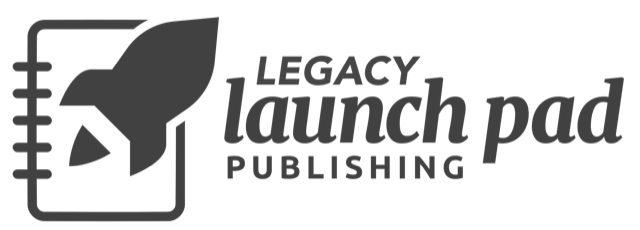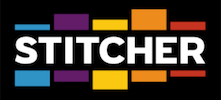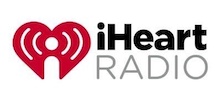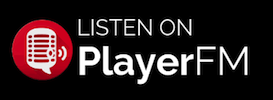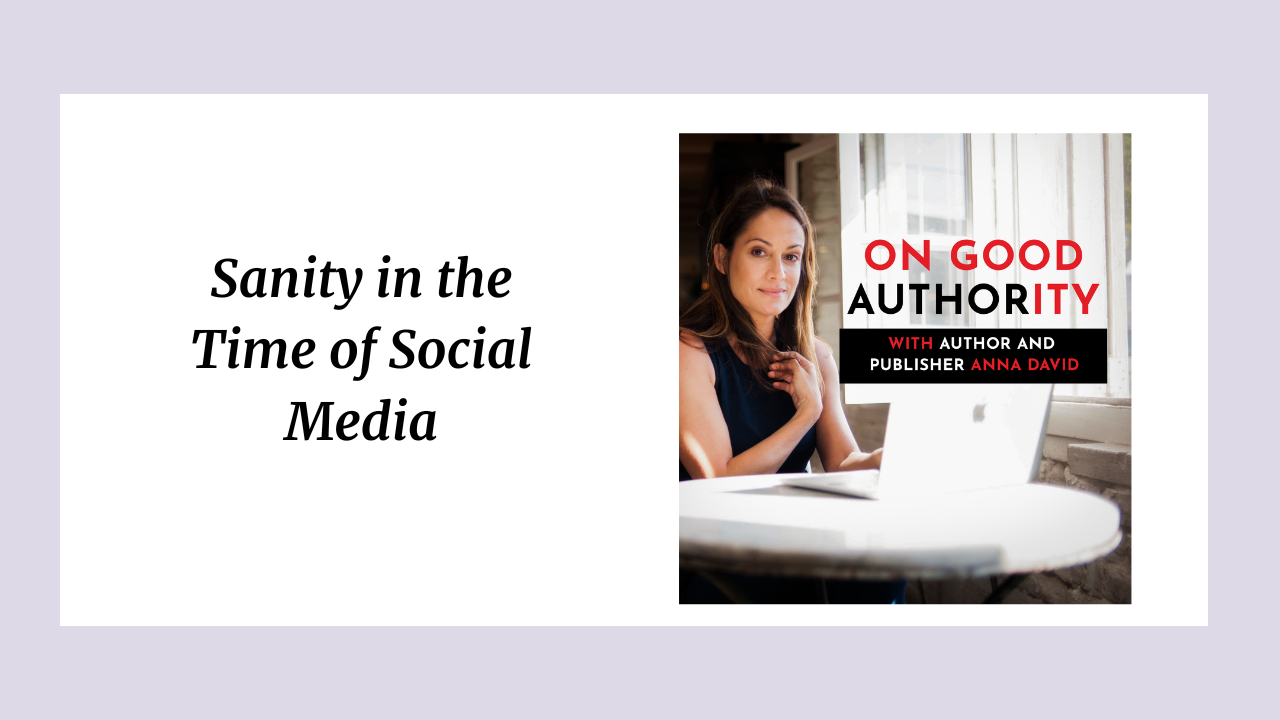
Sanity in the Time of Social Media
Social media sucks.
It's also wonderful.
And it's my opinion that you need it if you're going to build your authority around a book.
This episode breaks down why I think it's important and how you can do it without going crazy...in fact, how you can use material in your book for your posts, and build your entire online authority in just few hours a week.
This is another episode based on the book I'm writing.
APPLY FOR A CALL TO WORK WITH LEGACY LAUNCH PAD HERE
TRANSCRIPT:
Hello there, welcome to the podcast. My name is Anna David, if you're new to the show. I'm so so glad you're here, and I am here to help you launch a book that will help build your authority. Now today, it's another solo episode based on the book that I'm currently writing. Get more info about that by going to www.annadbook.com. This episode is about making social media work for you without going insane. Otherwise known as making social media work for you, rather than you working for it.
Now, I will tell you, I wrote my first book before social media existed. I know, isn’t that crazy? I remember meeting, HarperCollins had already bought the book and I went, and I met with the publicity department there. I sat down in this guy's office, and he said, I know this sounds crazy, but I want you to join Facebook. And I go, that thing for college kids, you want me to join it for my book? And they said, I know, that's crazy, but I want you to do it. I'm not even kidding.
So, at this point, you know, as I'm recording this, BookTok is, you know, probably in 2022 was responsible for more book sales than any other thing, platform, publication, certainly more than the New York Times. It's not terribly relevant for people that write nonfiction. It's far more relevant if you're Colleen Hoover, a romance novelist. However, you know, I had Shelley oh my God, why am I blanking on that TikTok? Oh, Shelby Leigh, lovely girl. Had her on the podcast tell you about TikTok, and she writes nonfiction, and she writes poetry, and she has a huge following. So, it's not entirely useless. It's just not, it's not where I personally have found a lot of success finding my audience. That being said, I haven't tried very hard.
But even Jane Friedman, who, if you know who she is, I think we can agree, a pretty serious person as probably the reigning expert on publishing today. Even she says, I think you make your life increasingly difficult if you don't do any social media whatsoever. She says she knows people, so it's possible, but that you're making your life extremely difficult.
You know, if obviously, it's traumatic for you to use social media, then not triggering your trauma is more important than any authority building. But it's really hard. The point of social media, as far as I see it, is to change your attitude. And I've talked about this before, but rather than going the endless scroll and comparing to spare, and I want to be on that yacht, or whatever, we've all got our versions of it. I try to look at it as an incredible opportunity to have my own TV show, my own radio station, this, this is my own radio station.
I get to do whatever I want on this podcast; I have no asshole boss telling me that I'm doing it wrong, getting on my case about the lack of downloads or reviews, or whatever it is, I get to do whatever I want, I get to share, I get to talk to you, and that's a privilege, and pretty special. So that is true of every single thing you post or every single thing you get out you put out there.
Rather than looking at it as a burden, look at it as an opportunity. When else in society have we had the opportunity to, you know, I came up as a magazine writer, we would have to pitch and pitch and pitch to get a magazine to agree to publish our work. And then once they did, they would often change it entirely, so it was completely unrecognizable as our work.
Now we get to do whatever we want. So previous podcast guest Rob Fitzpatrick has a system that he told me about. Now, he's not like a big social media guy, but he said whenever somebody asked him a question, instead of answering through email, he'd record a five-minute video answer and post it on YouTube. So, people are constantly being reminded of his thought he's not doing any extra work. He's just answering questions that are coming his way. I have tried to do that a little bit. I forget. Instead, I just go ahead and answer the question. But if one person in your audience has that question, I guarantee other people do.
Here's the other thing we've talked about this, you guys, people say, I'm not that comfortable putting myself out there. Now, if you have a message to share, if you have gone through something, or you have experienced finding success in something, and you're not sharing that, because you're thinking about yourself too much, and you're feeling uncomfortable, and you're doing a disservice. People are not just going to find your book. Put it out there.
And can I tell you a secret? This book that I'm talking to you about right now, I have been using it as content for months and months and months. I basically have the book I'm writing, then I save a new version of it. As for social media, and I post different sections. When I post a section from it, I highlight that, so I don't go back.
What I'm doing right now I'm recording, I took this book, and I divided different sections into it. And I pasted the text onto a page, which I'm not reading from because I don't read, you know, read these episodes, but I have my notes. And I'm not worrying that you're going to not want to read my book, because I'm telling you about it now. I'm not worried that you're going to email me and go, Anna, Jesus Christ, I, you said that on the, and now I read it in the, no, first of all, I don't know about you, but I don't even remember what I read last night. Let alone some podcast I heard. It might sound familiar, but you know what, most of us have built-in forgetters, we need to hear things over and over and over again if we're going to remember them.
So, you can take your book, and here's what I'll do. I open the, right now I'm using a platform called Social Bee, and I take a little section and I put it up. I schedule it to go on my LinkedIn and I schedule it to go on my Twitter, the same thing. They require a little bit of finessing because for LinkedIn, it's really good to start it with a question. Know that people are going to see just the first two or three lines. So, some provocative question, followed by whatever the idea is, followed by some question at the end, that's meant to incite a conversation.
And I think that's also the main point about this social media thing. You are not shouting from the rooftops your brilliance you are having a conversation with people who are also interested in this topic. So obviously, Twitter has a count limit. So Social Bee allows you to kind of choose, you know, do a variation. But like the basics are done, I've got the two posts that are going on the same sites, and then I just kind of tweak them.
And I do, I schedule them just for weekdays. Something Monday, Tuesday and Friday. Then for Wednesday, I release, this is all so frickin meta, this podcast episode. So, then I schedule a post that has to do with this pod, whatever the week's podcast episode is. Now I started doing something where every Thursday, I talk about what was in that week's newsletter and I say, hey, you can subscribe here. That entire process takes maybe 15 minutes. And here I've got I get people to listen to the podcast, I get subscribers, and I'm constantly putting myself out there with very little work.
You could also take your book and make it into a Twitter thread. You could make it into a video, I've done that too. You know, I'll record something that's under a minute, some video, and I will post it, and the reason I make it under a minute is that YouTube shorts seem to do much better than anything that's over a minute. So, YouTube shorts was basically YouTube's attempt to be like, TikTok. So, yeah, if as long as it's under a minute, it's considered a short. When I post those, they seem to get a lot more views than when I just post other videos. And so, then I'll post it on TikTok, then maybe I'll share it also on Instagram. And I have created something that I'm using in multiple platforms that's basically just a section of my book. You could also take a quote from your book and make it into a quote card on Canva and then have some caption, that's an excerpt from your book. There are so many, many different things you can do.
Now, one of the best interviews, one of the most useful interviews I ever did with anybody about social media and audience building was Jesse J. Anderson, who I quote in the book, and he realized in his mid-30s, that he had ADHD, and he went to Twitter. He didn't have, maybe a couple 100 followers, and he started tweeting about ADHD. And he said, I talk about stuff that for most of my life, I was embarrassed. And he really treats it like a community. Now, I don't have his numbers in front of me, but like he went from a couple 100, right now, he has over 130,000 followers on Twitter. His tweets constantly go viral. He's not an ADHD expert, he's much, he has a much bigger following than ADHD experts. He's out there just talking to people, you know, and he said something that I think is so important. He goes, you're just trying to teach what you didn't know, six months ago. So good.
And Zara Barrie, when I had her on the podcast, she talked about how she'll people will say, well, I don't want to post on Instagram, I don't have a big following. And then she goes, you know, look, you've got 100 people, that's 100 people who decided they wanted to hear from you. And obviously, they're not hearing from you all the time because algorithm, people don't see anything. But if somebody's commenting on your posts, comment back, like them, do things. I try to do that for every single comment. I think it's pretty amazing that a stranger would care enough about what I have to say that they would write something.
So, and certainly answer the DMS that are not creepy or bots. All the DMs I get are from bots, who allegedly can help grow my Instagram following to a million. But here is the most important thing, especially when it comes to Instagram is that interaction means so much more than numbers.
There is an amazing New York Times story that ran in December of 2021, about how traditional publishers were overvaluing social media numbers and it talked about how Billie Eilish had 97 million Instagram followers, but her books sold 67,000 copies. Now, obviously, 67,000 is a lot, I'd love to sell that, but when you have 97 million Instagram followers, that's pathetic. Nothing against Billie. The point was, she wasn't telling people that she had a book and much like I was talking about, oh, this was in a previous episode about how I wrote a book about reality TV, not realizing that people who care about reality TV don't want to read books about it. Maybe Billie Eilish’s fans just want to listen to her music, don’t want to read her book. And Justin Timberlake has got 53 million Instagram followers, sold 100,000 copies in three years.
So, if you're not sharing about your book, then people are not going to care when it's out. And just sharing once isn't going to, you know, keep doing it and doing it and doing it. You know, I'll tell you, you see what people respond to when I write about when I post about how uncomfortable it is to do all of this stuff. I get a huge, huge response. So, see what people respond to you. And you know, it sounds so cheesy, but it's like, you're getting to know people, people I consider good friends.
I mean, Christina and Ashley, Christina and I have never even met, if you're listening. You know, she's so amazingly supportive, like this is a friend, so never forget that this isn't about numbers. And this isn't about you know, being a quote influencer. This is about building relationships, and if you build relationships with people and you show them how valuable you are, and how much you know about your topic, trust me, they're going to be begging you to write a book.
So, that is today's episode. You can find out more about this book that I am talking about by going to www.annadbook.com. And I love you, say hi, hey, if you're on social media, reach out to me. Send me a DM so that I don't have to have like the creepy weirdos or the bots telling me that they'll make me huge on Instagram. Just find me at www.annabdavid.com. No, that's not it @annabdavid. Love you. I'll talk to you next week.
